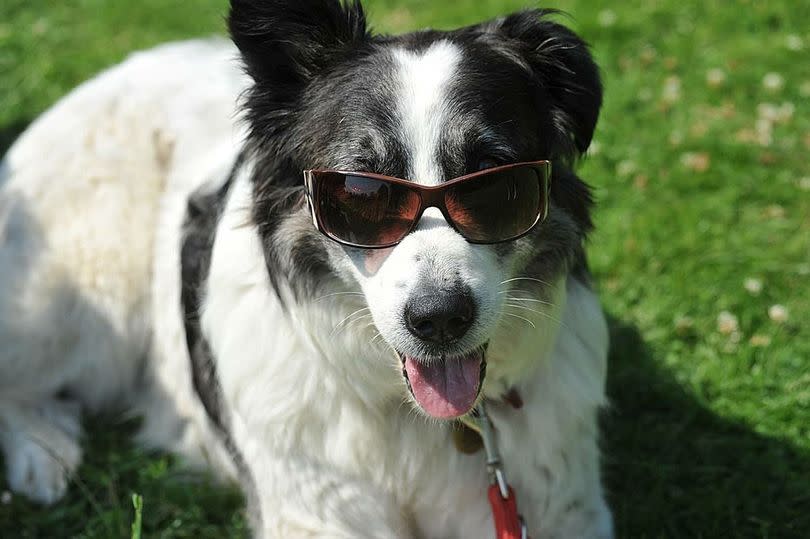Four common gardening habits which could accidentally harm your pet

Pet-owners and the green-thumbed have been warned of common gardening mistakes with could unintentionally harm your pets. As the weather grows warmer, people will be looking to get out an about in their gardens to tidy and brighten things up for the new season and experts have warned gardeners to be on the lookout for four things which could hurt your four-legged friends.
Certain plants and flowers can be toxic to both cats and dogs if ingested, as can certain fertilisers and even insect stings. Catrin George, animal wellbeing specialist at Animal Friends Pet Insurance , says: “While the sight of new spring flowers and the return of the warmer weather are welcome after the dreary winter, you need to exercise caution where pets are concerned - not only when out on a walk, but in your garden too."
She added: "From seasonal flowers, to pesticides, and even bugs, there are many hazards at this time of year which can be dangerous for dogs and cats - sometimes with deadly results.”
Read more:
Map shows Japanese knotweed hotspots in Devon where invasive plant is most pervasive
Gardening expert shares four mistakes to avoid when growing orchids
Poisonous plants and flowers
Catrin says, “There are a few things to consider when picking flowers, bulbs and seeds to plant in your garden when you have pets - most importantly, toxicity. Some of the most common springtime flowers can be harmful and potentially deadly for our dogs and cats.
“If you’re a pet owner, you should avoid daffodils, tulips, bluebells, lilies, ivy, crocuses and rhododendrons. Outside of the flowers in your own garden, it’s also important to be mindful of the plants your pet comes into contact with while out on walks.
“If your pet does ingest any of the toxic plants in the list above, or any others that you are unsure about, consult your vet immediately. Even if you didn’t see them eat the plant but they are behaving unusually, or you did see them but there are no side effects, you must act quickly.”
However, there are many safe plants you could opt for instead, which won't make your pets sick. These include roses, sunflowers, camellias and snapdragons, among others.
Fertiliser
Catrin advises: “Always ensure the fertiliser you pick is pet-friendly and not toxic. You can play it safe with well composted manure (they might want to roll in it though), compost and seaweed but avoid ones containing cocoa bean mulch, bone and blood meal or fish meal as these can be toxic to cats and dogs."
However, according to Gardening Know How, seaweed based fertilisers are a good alternative and leavining grass clippings on the lawn can mean you use up to 20 percent less nitrogen fertiliser.
Pesticides
You'll want to be on the look out for pesticides or insecticides which contain organophosphates, which can be life-threatening for an animal if ingested. These tend to be found in rose care products, according to Medway Vet. Meanwhile, cocoa shell mulch is a byproduct of chocolate production, contain theobromine and caffeine - the ingredients in chocolate which are harmful to dogs.
Catrin says: “Be aware when using any pesticides or herbicides in your garden, as these can also be dangerous for your pets to come into contact with. Weed killers, slug repellent, and even cocoa shell mulches are all hazards, so look for safer alternatives to use.
“In a household with pets, natural methods of repellent, such as boiling water, vinegar or salt, may be best rather than resorting to using chemicals.”
Bugs to watch out for
Some insects are poisonous when ingested by animals, while some have venom which may cause an allergic reaction in your pet. However, one of the more serious illnesses your furry buddy could contract in the garden - lungworm - is spread by ordinary slugs and snails.
Catrin warns: “As we move into spring and the weather starts to get warmer, insect bites and stings become more common. Most times, these bites heal on their own but if your pet has an unexplained allergic reaction such as swelling, then you should immediately take them to the vet. In rare cases, insect bites and stings can be fatal so they should not be ignored.
“Slugs and snails, which are particularly common in spring, can carry lungworm which risks spreading to dogs if they lick slime trails, drink from puddles or eat grass. Signs of lungworm in dogs include coughing, lethargy and diarrhoea and will need urgent treatment from a vet.”

 Yahoo News
Yahoo News 
